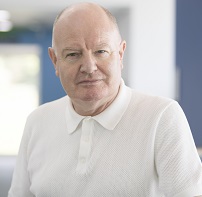You are here
- Home
- Research Streams
- Collaborative and Inclusive Governance
Collaborative and Inclusive Governance

The Collaborative and Inclusive Governance Research Stream is led by Professor Leslie Budd.
Governance appears to be a variable and at times vague concept, yet it pervades every part of human endeavour, whether constitutional, cultural, economic, political and social with respect to citizenship in its various manifestations.
Meet the teamAt its simplest, governance can be defined as the attribution of public status to a variety of actors, agencies and communities who act as trustees on behalf of their constituencies in the development and implementation of public policy and its global reach. Governance stands in relation to government in that the latter is the formal exercise of legitimate power in order to provide the means by which society functions and is sustained, underwritten by juridical processes, protocols and codes. Consequently, the public status attributed to governance tends to be dynamic, given its often-informal nature and interaction with the formal activities of government.
The complex relationship between governance and government then creates the spaces in which collaborative and inclusive forms may be created and are sustained. In an era in which the capacities, capabilities and reach of government appears limited in dealing with “wicked problems”, associated with inequality, austerity and collaborative and conclusive governance may be able to contribute to their attempts at resolution.
Furthermore, collaborative and inclusive governance acts as a potential agency in promoting engaged citizenship. This Stream thus cross-cuts a number of lines of multi-disciplinary academic and intellectual enquiry within the Citizenship and Governance Strategic Research Area (SRA), the objective of which are:
- Promote international scholarship in the area of collaborative and inclusive governance and its cross-cutting impact upon the Open University’s expert research reputation in citizenship and governance studies.
- Create a network of scholars at all levels to promote greater understanding of contemporary “wicked problems”, and the means by which this stream may address them. In undertaking this objective, the aim is to develop the academic and intellectual trajectory of the network participants.
- Establish a robust pipeline that will build successively upon internal and external public events; published output; bidding for research grants; and, author cognate sustainable curricula in order to create and sustain the capacities and capabilities of the Stream.
The strengths of the Stream are built upon the capacities and capabilities; expertise, reputation and commitment of its member and the international academic, policy and practitioners networks they are central to. Their published outputs and research projects are sustained through the multi-disciplinary academic and intellectual formation. Their work crosscuts the other Streams with which they engage co-operatively and collaboratively for maximum impact through their knowledge exchange and external engagement with external stakeholders.
Partnerships
There are a number of existing and emerging collaboration through Stream members' interactions with external partners and stakeholders. Examples include:
- Space Exploration Analysis and Research (SPEAR), The Open University Business School
- Centre for Voluntary Sector Leadership
- Regional Studies Association Place-Based Leadership Research Network
- Urban and Regional Economics Seminar Group
- Community Action: MK
- Ribble River Trust
- European Group for Public Administration
- Defra/EA/WG/NRW Thematic Advisory Group (TAG)
- Migrant Mothers Caring for the Future Network
Projects
- Collaborative networks involving women entrepreneurs in the tourism sector in West Africa
- Electronic Governance for You (EGOV4U)
- eGov4All: Creating a Digital Social Economy
- Governance and Public Administration Systems
- Emerging collaborative governance in a new community
- Comparative study of collaboration in two policy arenas
- European City Leadership Network
- Achieving Flood Resilience in an Uncertain Future
- Third Sector delivering Public Services
- Metro-Mayors in the Northern Powerhouse
- Participatory Arts and Social Action Research
- Benefits of European Space Agency’s Exploration roadmap in Socioeconomics (BEERS)
The BEERS project investigates and evaluates the socioeconomic benefits of European Space Agency exploration space missions with respect to economic competitiveness and growth, new means to address global challenges/sustainable development goals and inspiration. This collaboration builds upon the existing reputational capital of the OU’s expertise in space exploration and its impact upon the economy and society. The project brings together expertise from the OU's Faculty of Business and Law (FBL) (Professor Leslie Budd) and the Faculty of Science, Technology, Engineering and Mathematics (Dr Manish Patel, Dr Victoria Pearson and Martyna Hodges) under the Citizenship and Governance umbrella and FBL-based SPEAR cluster.
Teaching and Impact
At present the Stream includes a number of PhD Students who also work across other Citizenship and Governance Streams. As this Stream builds its capacities, the team plan to investigate how sustainable curriculum at undergraduate and Masters levels as well as Massive Open Online Courses (MOOCs) and associated partnership vehicles delivery could be produced.
Contact the Collaborative and Inclusive Governance Research Stream
Citizenship and Governance SRA
The Open University
Walton Hall
Milton Keynes
MK7 6AA
United Kingdom
News
- Event: Citizenship & Governance Festival of Research: Celebration & Opportunities 8th November 2022
- Event: Just Transitions or Levelling Down? 25th August 2022
- Excellent REF results for C&G colleagues 13th May 2022
- Paired App in the Apple App Store 21st February 2022
- GOP and GENIES IWD event: Solidarities at work 7th February 2022
